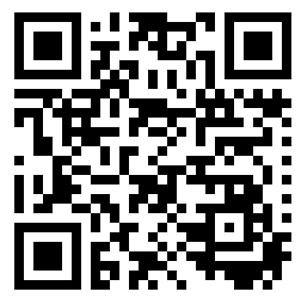Chapter 1: Cornerstones of Communication
Reading, Resourcefulness and Curiosity
I have a confession. I cannot diagram a sentence. If put on the spot and asked to define a dangling modifier, I don’t think I could do it. I have two journalism degrees and many years of experience in writing, yet much of my ability to write well boils down to being a shamelessly obsessed reader from early childhood. When I see words on a page, I know when they’re right and when they’re wrong, even if I can’t give a perfect grammatical explanation for why they’re wrong.
Reading can teach grammar, but it also gives you insight on different types of writing, different voices and different styles. Read newspapers, blogs, books in many genres, websites, Twitter posts, magazines. Read some things you know you’ll like and some things that will stretch you.
Be curious. If you see something new or unfamiliar or interesting, dig a little deeper. Years ago, I was first introduced to QR codes when I kept seeing references on Twitter and finally looked up what they were and how they were being used. Now they’re an affordable public relations and marketing tool that appears on restaurant table tents, college fliers and even resumes.
on Twitter and finally looked up what they were and how they were being used. Now they’re an affordable public relations and marketing tool that appears on restaurant table tents, college fliers and even resumes.
In addition to reading and exploring things that pique your curiosity, there are many resources to help novice writers grow and to help expert writers continue to advance. Take advantage of colleagues, mentors, bosses and educators who are willing to review your work and give constructive criticism.
I had the highest respect for a student who told me she pursued a writing-focused internship because she knew writing was a weakness for her and wanted to intentionally focus on improving. It’s much easier to seek out positions where you feel like you will shine and make a good impression, but the margin of growth is so much smaller. That student forced herself to spend the summer writing and receiving critiques and edits, and she returned in the fall with drastically improved writing skills.
There are also amazing resources out there as references when you have questions, need edits or just want to explore ways to step up your writing game. They can help whether you’re Pulitzer-worthy or not able to recognize a run-on. A few to check out include:
- Grammar Girl. Mignon Fogarty, also known as Grammar Girl, explores many common grammar questions with a fun, easy-to-understand style. Check out her website or social media platforms, or listen in on her podcasts.
- Everybody Writes: Your New and Improved Go-To Guide to Creating Ridiculously Good Content. Marketing veteran Ann Handley writes a great book that goes from writing basics to best practices.
- Apps, websites and browser plugins. Do a little digging to see what’s out there. Things like Grammarly, which can help check your spelling and grammar, or Hemingway Editor, which focuses on making writing more concise and readable.
